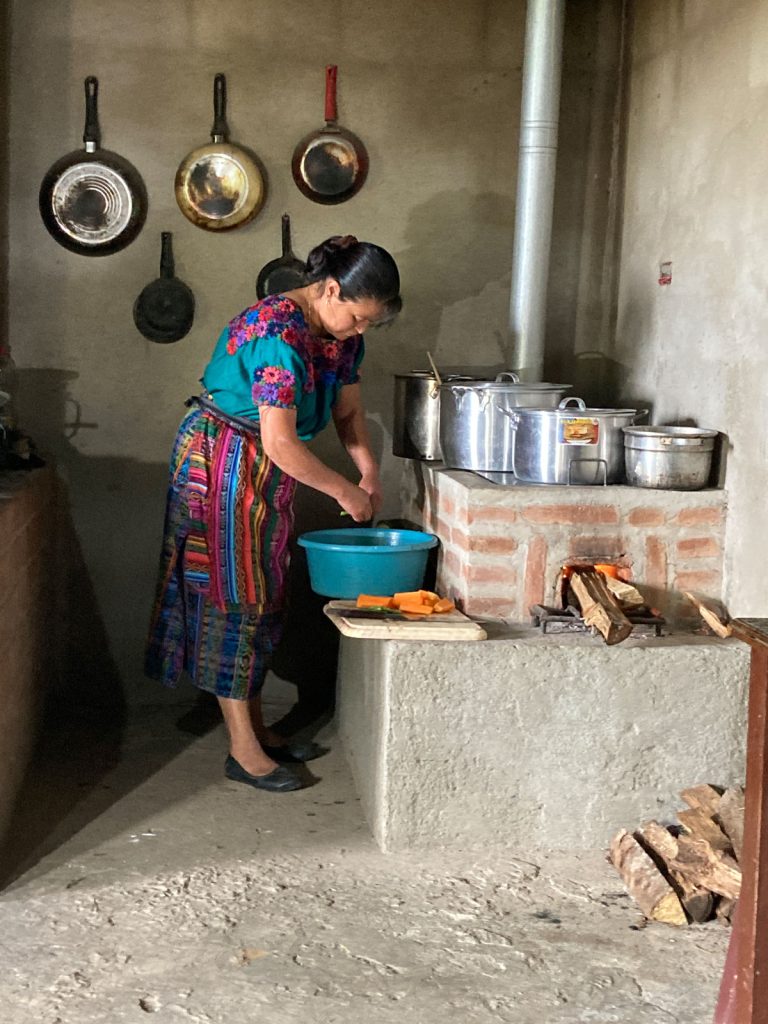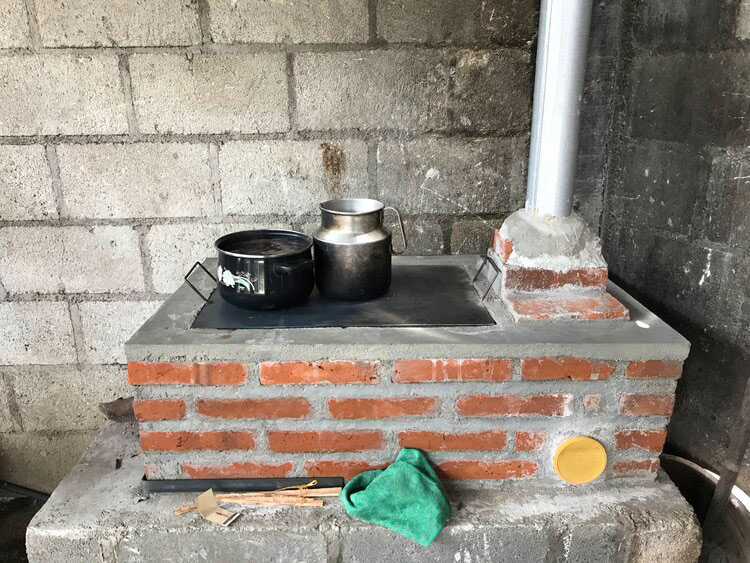By Ariel Miller
Some 3 billion people, almost half the world’s population, still rely on open fires and fuels like wood and kerosene to cook their food. The simple act of cooking is responsible for 4 million deaths per year and is a major source of global greenhouse gases. ESRAG’s Cleaner Cooking Taskforce is ready to help you implement projects to reduce smoke exposure and deforestation, and save families a tremendous amount of time and money.
Rotarians and ESRAG are joining other global organisations in working to make cleaner cooking a reality for millions of families around the world. Solutions in Asia, Africa, India and Latin America include cleaner and more efficient stoves, electric magnetic induction stoves, and solar energy stoves. The Taskforce can help you find a technology and implementation plan that fits the culture, wealth, climate, and other factors of each community. Click on the “read more” button for vivid examples from Africa and Central America.
The smoke from open cookfires contains carbon monoxide, methane, black carbon, and other carbons that penetrate deeply into the lungs. This exposure harms pregnancies, cognitive development, and eyesight, and elevates the risk of diabetes and cancer. The impacts are most severe on women and children, who spend hours inhaling the toxic smoke. Women also bear the heavy burden of collecting the firewood, often walking great distances.
It is estimated that open fires produce 2% of global greenhouse gases and more than half of all black carbon emissions: 1,500 times more potent than CO2 in warming the earth’s atmosphere. The demand for charcoal drives deforestation, wastes a lot of energy, and is expensive.
The good news is that progress is under way! Cleaner cookstoves transform lives, improve health, reduce pollution, mitigate climate change, and help women and children reach a better quality of life.
It’s vital to choose the right technology for the community and culture where you are working. Here are some examples.
“It’s estimated that 1.6 cleaner cookstoves are needed in Africa,” writes Taskforce member Maya Smeulders, a solicitor with extensive international experience who leads the Uganda projects of Abington Vesper Rotary Club, UK. “People in rural areas are very poor. They live in villages without electricity, and have no means of transport, having to hike along unpaved roads. Gas is only available in towns and is too expensive, so wood-fuel is their only option.
“The best solution, given the current circumstances, is a stove which people can construct themselves from free local materials, and which does not need spare parts or technicians for repairs. We teach villagers how to build mud-stoves. For schools we use teams of local people with a trained Key Farmer Trainer to build stoves, paying a fair wage, transport costs, and for chimneys. People trained on these jobs pass this knowledge on to others in their community. When reliable and sustainable electricity eventually becomes available in the future, a switch to electric cooking should be made.” Abingdon Vesper’s projects include tree-planting to help communities mitigate the terrible deforestation taking place in East Africa.
Clean Cooking Taskforce members Doug Thompson, a physician, and pharmacist David Knoppert, both Canadian Rotarians, are implementing a different technology with their partners in Central America: the insulated brick Justa rocket stove. They came to this solution after a careful study of how families manage the economic and infrastructure limitations they face.
Liquid gas or electricity are both far too expensive for most households. “Most of the people in the communities we serve cook with firewood,” says Doug, a member of the Stratford Rotary Club in Ontario. For that reason, his club’s projects also include reforestation. The Justa stove uses at least 50% less firewood than open fires.
“Cooking is very much a cultural phenomenon,” Doug adds. “People cook certain foods in a certain way. Even switching from an open fire stove to an enclosed, more efficient stove was a learning experience when families are used to open fires and feeling the heat from that.” The metal griddle on top of the Justa stove works beautifully for cooking the foods people prefer: beans and tortillas.
“In rural communities in Africa mud-stoves are enthusiastically accepted as a replacement of open cooking fires,” Maya says. “People love them and are proud of them. In Middle America, though, Doug and David tell me that would not be the case.” The mud stove is ideal for Ugandan cuisine, with stew pots fitting into the openings, but wouldn’t be for cooking tortillas.
“It is important to get input from the area where you are doing the project to understand these cultural preferences, economic considerations, and availability of appropriate materials,” Doug says. “For example, in the Sahara and in many refugee villages, solar cookers make more sense (despite a number of drawbacks) because of climate, and because other fuels are unavailable.”
Join us in this work! We can help your Rotary District or Rotary Club develop a strategy to initiate or support a Cleaner Cookstove project. In addition to our direct experience in Africa and Latin America, we have contacts with other organizations worldwide. Through Rotary’s Global Network of over 30,000 Rotary Clubs, its fundraising expertise, and the availability of District and Global Grants, we can make a difference. Visit the Clean Cooking page on ESRAG’s website for more information.
Maya Smeulders: [email protected]
David Knoppert: [email protected]
Doug Thompson, MD: [email protected]


